Tony Buba and Ray Henderson created the 1996 documentary “Struggles in Steel: A Story of African-American Steelworkers.” Buba is the force behind Braddock Films, located in Pittsburgh. Henderson worked for nearly 20 years at the Duquesne Steel Works in Pennsylvania. He released a book about his life titled, “My Three Books: A Life Journey,” which was published in early 2017. The following conversation is excerpted from a presentation they made in January, 2017. The pair—who graduated high school together in 1961—gave talks and held discussions at screenings of their poignant documentary and remained friends until the recent passing of Henderson.
This conversation has been edited and condensed.
Tony Buba: This was Ray’s idea for a film to begin with. What happened was Channel 4 aired a documentary. We talked a little bit about it in the film—Channel 4 aired a documentary on steelworkers that lost their jobs. It was a whole one-hour piece, [and] they didn’t have one African-American in it. Not one black person was in that whole piece and talking about the loss of employment. Ray called me up; he was upset. It’s one of these things where the omission is just as bad as people who really are racist. Once we started shooting, we knew it was really a big project ’cause the guys we interviewed, if it had been any other time, they wouldn’t have been working in the mill. They probably would’ve had white-collar jobs. Most of them had at least two years of college, one or two years of college. For us to give these gentlemen any kind of honor, we knew we had to make it a bigger project.
So we started out with a 10-minute piece. We went out and interviewed these different people over the summer. We went out all summer, just went out and shot and got a 10-minute sample together and ended up raising about $200,000 off the sample to do the whole piece. So we spent the next couple of years fundraising. And then got funded by ITVS [Independent Television Service], who gave us the bulk of the money for the project.
When you look at the film, you’ll see we made some decisions before going into shooting. One is we used a lot of close-ups and just hung out on people’s faces and tried to use the face as a landscape. Because at that time—and still today—you don’t see really many working people on film, especially African-Americans. So we wanted to use close-ups of the face and use the textures and skin tones as the landscape. Then we also went for extended takes. All of the gentlemen that we interviewed came out of a Southern storytelling tradition where things build. So you just couldn’t cut in and cut it short. You had to let the story develop within each person’s talk.
We probably have one of the larger collections of oral histories of African-American steelworkers in the country. [But] some people didn’t want to be interviewed. They were afraid they were gonna lose their pensions.
Ray Henderson: We had a couple that was afraid they were gonna lose their pensions. Then down in Montgomery, they thought we were gonna get them some more money. They thought it was something great. And you just had to allow them to fully explain themselves, because sometimes they would forget stuff and it would come to them. And you had to let them have their say. A lot of the workers, some of the workers that we asked wouldn’t get a solid answer until about a minute, a minute and a half into the tape. But there were some that went straight to the point, but not very many.
I’m trying to find the right words. I don’t want to be too hard on them. But they [the company] really don’t have any sensibility about their social obligations to the people who work for them.
It’s a devastating thing when a company pulls out of the town and there’s nothing there. Once they leave, that’s it. People are out of work, streets go bad, sewers go bad. It’s a bad thing. And that’s what happened in the ’80s with the steelworkers. We got flushed out. Not only did they lose their homes, they lost their dignity. They just lost their hope, because there wasn’t nothing there. And that company should’ve been made to create something before they left.
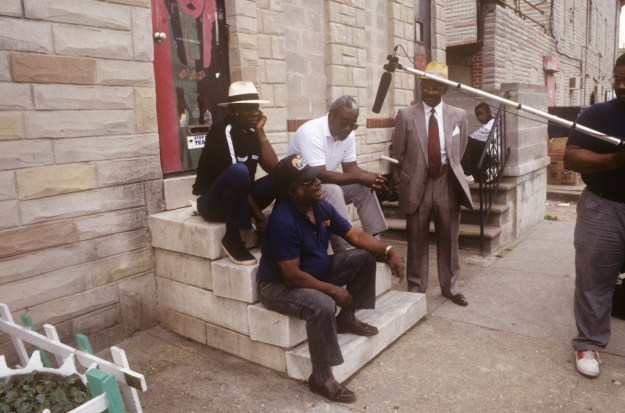
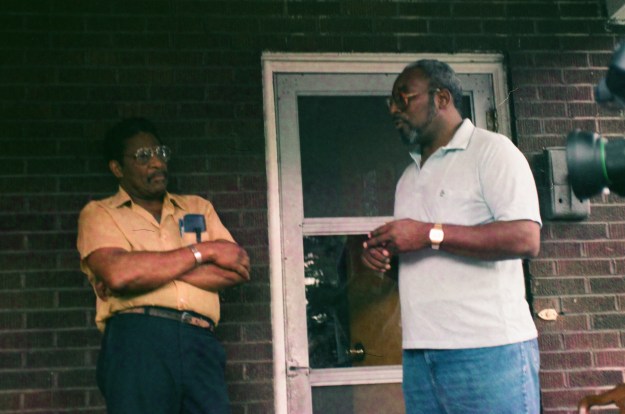
Buba: I guess in working on the film, for me one of the eye-openers was the fact of the union not totally pushing. The big thing was that because of the jobs these guys had, they all died younger.
The lifespan is shorter because working in the coke plant, working in the mill, where there’s so much more pollution, they ended up getting cancer, heart disease. So you have, say, my dad being a welder, which is a better job. So when he retired, of course his social security was more and his pension was more. Because the job wasn’t as heavy with all the pollutants as other workers’, he lived to be 81.
For African-Americans in Braddock, the husband died at 65, so then there’s the spouses that are left alone. How do you keep up these homes? And we saw this just whole snowballing effect. For my dad and for most workers, your trust fund was that you worked hard in the mill and your kids got a job. I mean, that was the trust fund. If there had been some government policy at that time where they would’ve taken over the mills and, say, eased production out over a 20-year period, where you could’ve prepared people for this loss and for education, knowing it was gone. But it was just so quick. It was so sudden that people were just shocked.
Buba: We were doing a lot of prescreenings. We’re showing the film around. We showed it to this education group at Duquesne—we had this shorter cut. And what happened, the conversation that come of it, “Well, my family’s Irish. We’ve faced discrimination in the mill.” Or, “My family’s Italian. We faced discrimination in the mill.”
So instead of us as filmmakers getting angry at the audience for not getting what we’re doing, we thought, What fault do we have in our film? So that’s when we went back and recut and added the footage, added the material of the lynchings and the violence. ’Cause then once we put that in there, that ended that argument. It was really in the construction of our doing it. A lot of it was brought out by these gentlemen having a historical perspective. It wasn’t just this narrow focus. It was really interesting.
As we’re entering in this period, this new press, I really think mass demonstration is critical. I mean no matter what has happened, that’s the only power we have. A lot of this stuff, those people who were in power back then, they didn’t give up that power without people being out there protesting. We still have that. We have a mass of people and you really have to get people out. I like Facebook and Twitter, but it’s really like people on the sidewalks and in the streets.
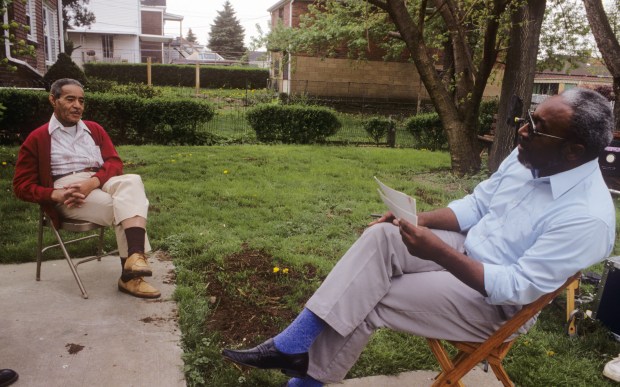
Henderson: Most of the guys that you see [in the film], they’re gone, with the exception of maybe two or three that are still here. The thing is, when I was able to get around, I would stay in touch with some of their family. I can’t do that now. I wish I could.
I think a lot of the family kids that I knew from these interviews, I kind of think that either they have moved out of town or they have also died. Working around steel mills such as Clairton and Duquesne, which emitted a lot of dust and a lot of different kinds of chemicals—kids breathe that stuff in—they wound up with asthma and other things. And they probably get knocked off a little early, too. I’m surprised I’m still here, to be honest with you, because of the work that I did in the steel mill.
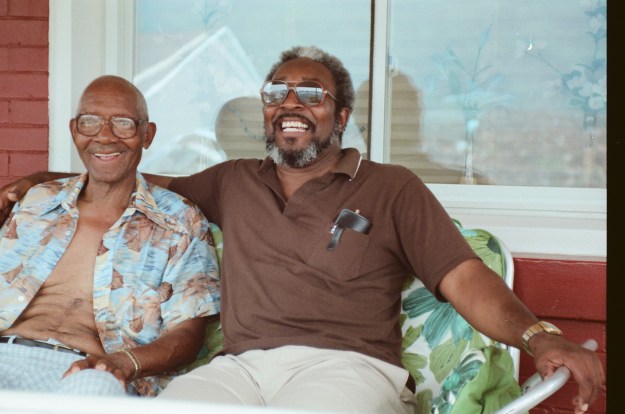
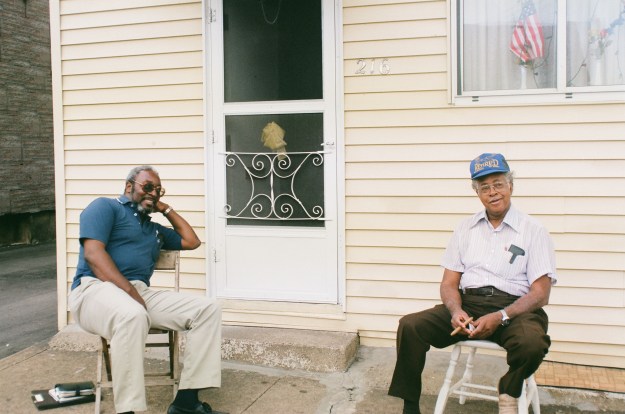
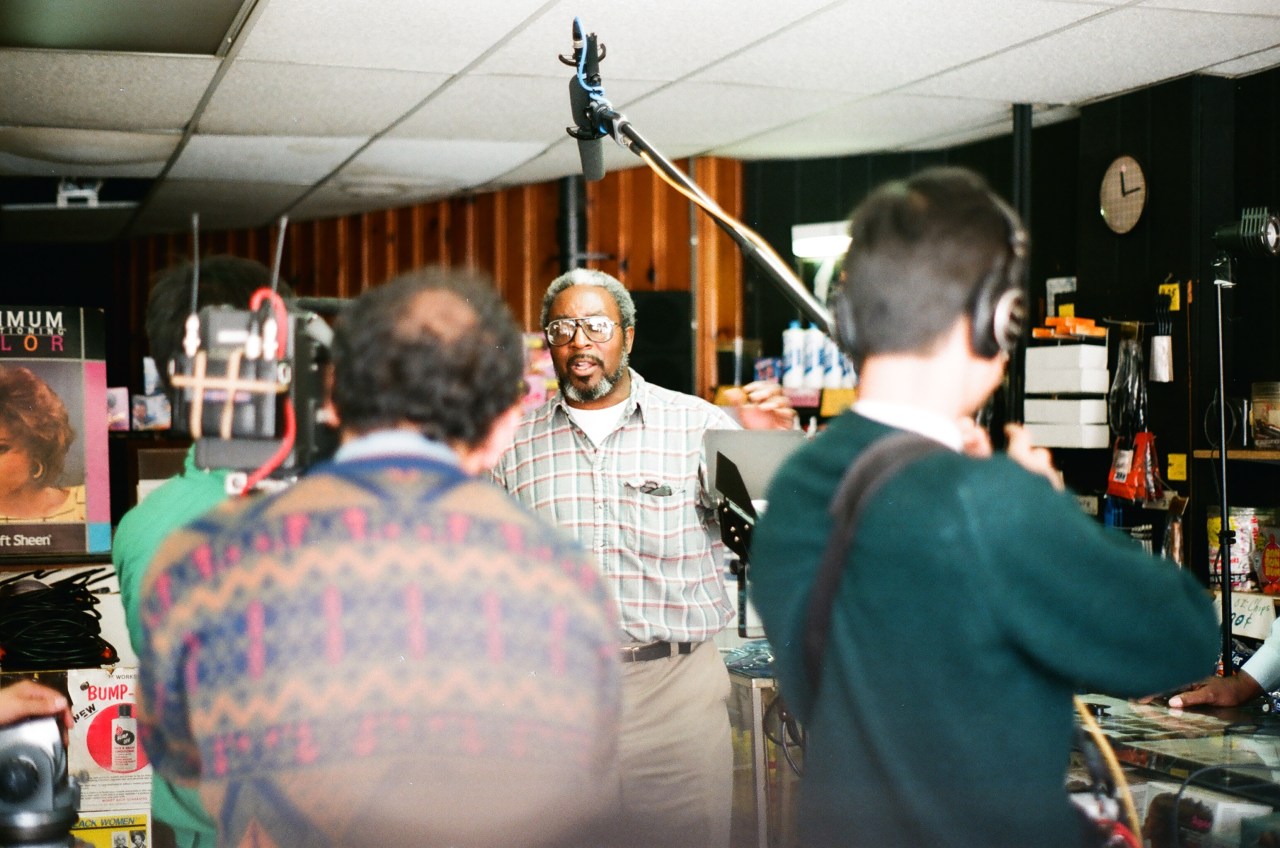
Henderson: Yeah. I tell you, we got a fight ahead of us if we want to. I don’t care if you like Trump or not, that doesn’t worry me. What worries me … in my opinion, [is] what he’s really saying to a lot of people in this country when they talk about going back to the good old days. There’s not gonna be no good old days. That’s just not coming.
I know from looking at history, every time they make a move backwards, I suffer. I get beat up. I get chased off the street. My family has to move. And poor people get beat up because of the fact that they want to move things backwards. And it just doesn’t work … ‘Cause I’m waiting for the groups to start coming out and start harassing different groups of color on a steady basis. Because that’s what he’s talking about. He wants us to move back. I refuse to move back. I’m not moving. I’m staying where I am.